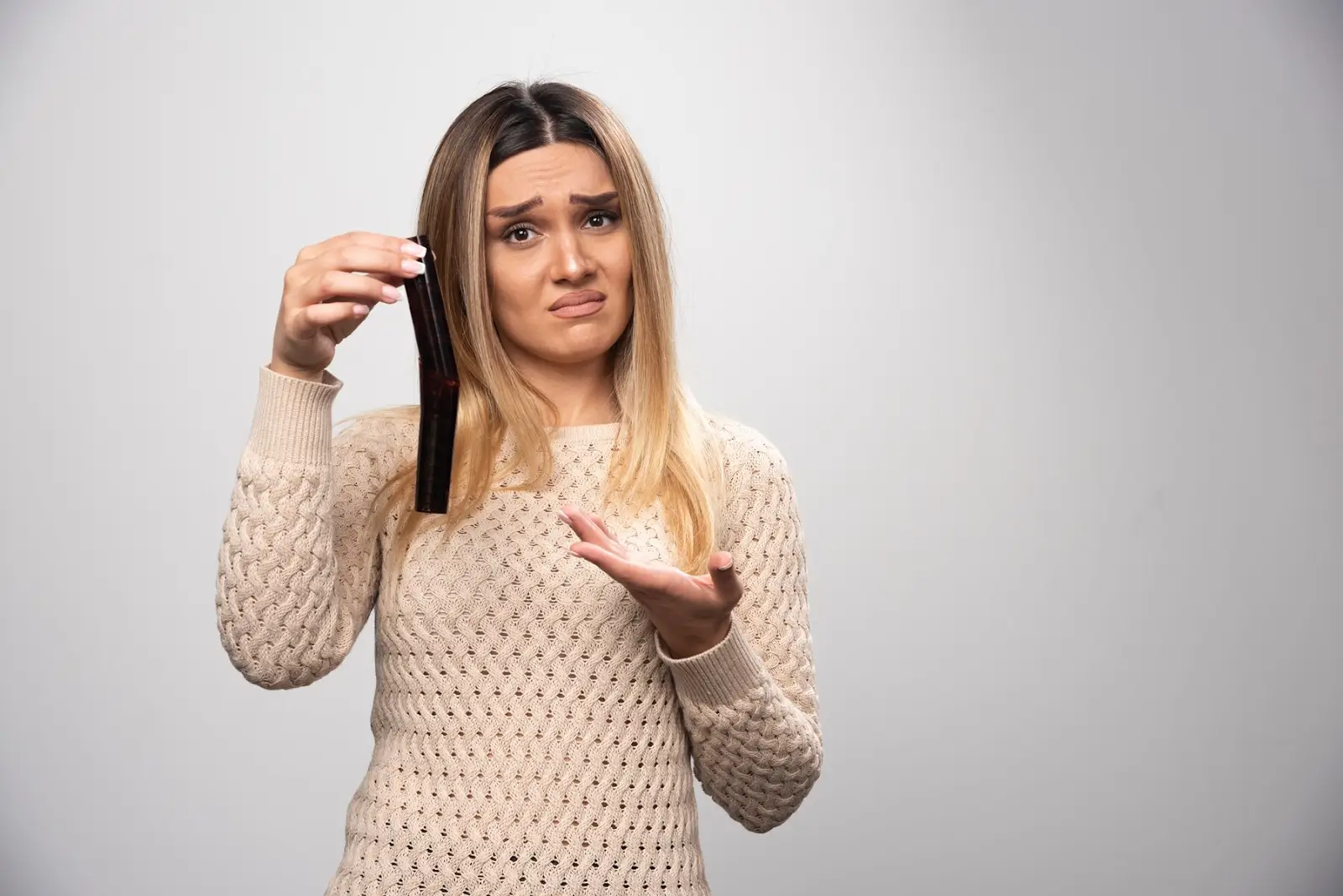
Millions of people rely on advanced treatments to manage chronic health conditions, and one such treatment is Eylea, an anti-VEGF injection widely used to treat serious eye conditions like wet age-related macular degeneration (AMD), diabetic retinopathy, and macular edema. By inhibiting abnormal blood vessel growth and leakage in the retina, Eylea has proven highly effective in helping patients preserve their vision.
Like any medication, however, Eylea comes with potential side effects. While most of these side effects are localized to the eye—such as pain, redness, or floaters—some patients have raised concerns about other, less expected reactions, including hair loss.
In this article, we’ll dive into whether Eylea could potentially cause hair loss, explore its known side effects, and provide valuable insights for both patients and healthcare providers on how to navigate these potential risks.
Key Takeaways
- Eylea is an anti-VEGF medication that inhibits abnormal blood vessel growth in the eye, helping maintain vision and reduce fluid buildup.
- Typical side effects include eye pain, increased intraocular pressure, floaters, blurred vision, mild inflammation, and temporary sensitivity to light. Hair loss is not officially recognized as a side effect.
- No direct clinical studies have confirmed a strong link between Eylea and hair loss, and regulatory agencies like the FDA and EMA do not recognize alopecia as a side effect.
- Some patients have reported experiencing hair thinning or shedding after long-term Eylea treatment, suggesting a potential, albeit unofficial, association.
- Disruption of VEGF signaling may impact hair follicle health, leading to conditions like telogen effluvium. Moreover, immune responses and systemic drug absorption could contribute to hair loss.
- Patients experiencing hair loss should discuss their symptoms with their healthcare provider. Monitoring symptoms and considering alternative treatments, topical solutions, and nutritional support may help.
About: Doctor Medica is your trusted supplier of top-quality dermal fillers, viscosupplements, and more for your medical practice. We offer genuine products from leading brands at the lowest prices. Contact Doctor Medica today to order Eylea online for your practice.
Overview of Eylea and Its Common Side Effects
Eylea works by inhibiting vascular endothelial growth factor (VEGF), a protein that plays a key role in abnormal blood vessel growth in the eye. By preventing VEGF activity, Eylea helps maintain vision and reduces fluid buildup in conditions like wet age-related macular degeneration (AMD) and diabetic retinopathy. However, as with any medication, Eylea comes with its own set of side effects.
Common Side Effects of Eylea
- Eye pain or discomfort
- Increased intraocular pressure
- Floaters or blurred vision
- Mild eye inflammation
- Temporary sensitivity to light
While these ocular side effects are well-documented, hair loss is not officially recognized as a common adverse reaction in clinical trials or manufacturer guidelines.
Clinical Evidence Linking Eylea to Hair Loss
Currently, there is no direct clinical evidence to confirm a strong link between Eylea and hair loss. Regulatory agencies, including the FDA and EMA, do not list alopecia (hair loss) as a recognized side effect. However, given VEGF’s crucial role in maintaining blood vessel health, it’s possible that its inhibition could indirectly affect hair follicles.
In theory, blocking VEGF could interfere with the hair growth cycle, but supporting evidence is still limited. Although hair loss is not listed as a side effect, patient reports suggest a possible connection.
Patient Reports and Case Studies
While official documentation does not recognize hair loss as a side effect of Eylea, there are several anecdotal reports from patients who have noticed thinning hair or increased shedding during long-term treatment. These patient experiences offer valuable insights, though further research is necessary to determine whether there is a definitive link.
Insights from Patient Experiences
- Timing of Hair Loss: Some patients report experiencing hair thinning after several months of regular Eylea injections.
- Pattern of Shedding: The hair loss is often diffuse rather than localized, with no clear pattern observed.
- Reversibility: In some cases, hair regrowth occurs after discontinuing or adjusting the treatment.
Though these reports suggest a possible association between Eylea and hair loss, the evidence remains inconclusive and more research is needed.
Potential Mechanisms Behind Hair Loss

The exact cause of hair loss with Eylea remains unclear. However, several biological mechanisms could help explain the potential connection. These mechanisms are primarily linked to the way Eylea affects VEGF and the body’s broader physiological responses.
- VEGF Inhibition: VEGF plays an essential role in hair follicle health by supporting blood flow and cellular regeneration. By blocking VEGF to reduce abnormal blood vessel growth in the eye, Eylea may inadvertently disrupt blood flow to the hair follicles, potentially leading to telogen effluvium, a condition where hair shedding increases due to stress or changes in the body’s physiological state.
- Immune System Response: Another possibility is that some patients may experience mild inflammatory reactions in response to Eylea injections, which can affect hair follicles. Inflammation around the follicles may disrupt the normal hair cycle, leading to increased shedding or thinning. The extent of this reaction may depend on an individual’s immune system sensitivity.
- Systemic Absorption: Although Eylea is injected directly into the eye, small amounts of the medication can enter the bloodstream, affecting VEGF-dependent processes throughout the body. This systemic absorption may disrupt blood supply to the hair follicles, potentially contributing to hair thinning or increased shedding in some patients.
Managing and Addressing Hair Loss Concerns

Patients experiencing hair loss while using Eylea should discuss their concerns with their healthcare provider. It’s essential for healthcare professionals to evaluate potential causes and recommend effective strategies to manage and address the issue.
Steps to Address Hair Loss
- Monitor Symptoms: Tracking patterns of hair loss can provide valuable insights. Patients should report any noticeable changes to their doctor for further evaluation.
- Alternative Treatments: If hair loss is a concern, healthcare providers may consider switching to a different anti-VEGF therapy. A comparison of Eylea vs Avastin could provide a viable alternative, depending on the patient’s condition and response to treatment.
- Topical Solutions: FDA-approved topical treatments, like minoxidil, are often used to promote hair regrowth. Consulting with a doctor about these options can offer a more targeted approach to managing hair loss.
- Nutritional Support: A well-balanced diet, rich in essential vitamins like biotin and zinc, plays a crucial role in supporting hair health. Patients can incorporate these nutrients into their daily regimen to promote stronger hair growth.
By maintaining open communication with healthcare professionals and staying proactive in managing symptoms, patients can address potential hair loss concerns early, identify the cause, and prevent further issues.
Conclusion
Although Eylea is not officially linked to hair loss, some patient reports suggest a possible association, particularly with long-term use. The inhibition of VEGF may disrupt hair follicle health, but further research is needed to confirm this potential connection.
If patients experience hair thinning during Eylea treatment, it’s important for them to consult with their healthcare provider for personalized guidance. By understanding the potential risks and available treatment options, patients can make informed decisions about their eye health and overall well-being.
FAQs
1. Can Eylea cause permanent hair loss?
There is no clinical evidence suggesting Eylea causes permanent hair loss. Any hair shedding associated with VEGF inhibition is typically temporary and may reverse once treatment is adjusted or discontinued.
2. How common is hair loss with Eylea injections?
Hair loss is not listed as a common side effect of Eylea. However, some patients report mild to moderate shedding after several months of treatment. This occurrence remains rare and anecdotal.
3. Should I stop Eylea if I experience hair loss?
Do not stop Eylea without consulting your ophthalmologist. Your doctor can evaluate the severity of hair loss and discuss alternative treatment options if necessary.
4. Are there other anti-VEGF treatments less likely to cause hair loss?
Alternatives like Avastin or Lucentis may offer similar efficacy. However, there is no evidence that these alternatives are less likely to cause hair loss specifically. Avastin, for instance, has no documented link to hair loss as a side effect, similar to Eylea.
References
Marshall H. Side effects of Eylea: what you need to know. Healthline. Published May 18, 2021. https://www.healthline.com/health/drugs/eylea-side-effects
Marshall H. Eylea (aflibercept). Published October 18, 2024. https://www.medicalnewstoday.com/articles/eylea
Cortez MF. Regeneron’s Eylea Has Mysterious Rise in Side Effect Reports. Bloomberg. https://www.bloomberg.com/news/articles/2018-02-21/regeneron-s-eye-drug-has-mysterious-rise-in-side-effect-reports. Published February 22, 2018.
Related Articles
Joanna Carr
Report Warns Of Rising Melanoma Rates
Have an interest in learning about A Report Warning Of Rising Melanoma Rates? Browse Doctor Medica's extensive archive of blog postings.
Joanna Carr
Meditoxin vs Nabota – A Botulinum Toxin Comparison
Meditoxin and Nabota are two leading Korean botulinum toxin brands. Learn how they differ in formulation, longevity, and clinical performance to help ...
Joanna Carr
Rejuran Under Eye – Remove Bags, Restore Firmness
Rejuran under eye treatment is an advanced, non-surgical procedure that uses polynucleotides from salmon DNA to rejuvenate and firm the delicate under...


